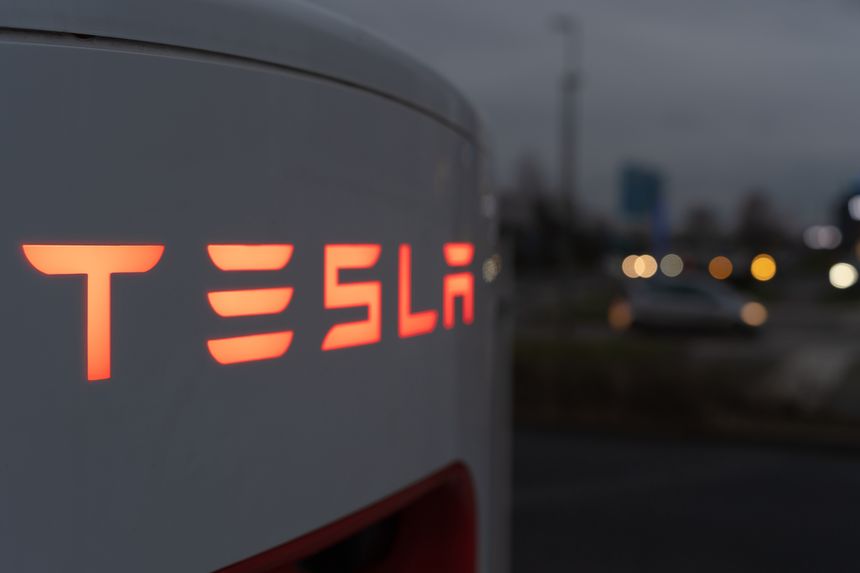
In recent years, it has become increasingly common to promote and advertise goods and services through social media. It is also not uncommon for some business entities use well-known trademarks of others to attract consumers. Tesla has recently encountered a similar trademark infringement case. Let's take a look at the specific situation:
Natural person LI has been posting promotional flyers on a total of 1,097 charging piles at 113 Tesla Supercharger stations since 2021. He used the flyers with the Tesla logo and QR codes to attract car owners to scan the QR codes to join the WeChat groups he set up. LI also posted information such as vehicle insurance, car wrap film, sheet metal painting, second-hand car services in multiple WeChat groups he established. It was found that LI has set up totally 14 WeChat groups and attracted about 2,000 people to join his WeChat groups.

Tesla logo
Tesla Inc. has filed a lawsuit against Li and his related parties for trade mark infringement and unfair competition, and has now received the final judgment.
The court of first instance held that LI's use of the mark identical with the plaintiff's trademark and his act of posting advertisements that are related to the plaintiff's business in WeChat groups constituted trademark use. Regarding the issue of confusion, the court of first instance held that, "LI took advantage of the influence of Tesla's trademark to make Tesla owners develop a sense of identity and group dependence, leading them to mistakenly believe that the WeChat groups for car owners established by LI had a specific connection with Tesla. Therefore, his behavior may cause confusion among consumers. At the same time, LI used the logo that is the same as the plaintiff's prior registered trademark on 1,097 charging piles at 113 Tesla Supercharger stations across the city, which can reflect his subjective intent to cause confusion among relevant members of the public by using Tesla's trademark".
Since Tesla Inc. failed to provide evidence to prove the actual losses suffered due to the infringement or the benefits LI obtained from the infringement, the court of first instance, after comprehensively consideration, decided that LI should compensate Tesla Inc. for economic losses of 100,000 yuan (Approx. USD$14,000).
Mr. Li was dissatisfied with the first-instance judgment and filed an appeal, stating that the flyers he posted were public welfare advertisements, the content of the advertisements was to promote safe driving and provide mutual assistance among car owners. He did not provide any commercial services or commodity services in the name of the Tesla Owners Club, nor did he make any profits.
Second-instance court upon examination decided to dismiss the appeal and uphold the original judgment on the basis that Appellant Li cannot deny that his actions still have a self-interested commercial nature on the grounds that his actions have a certain degree of unpaid altruism. The appellant used promotional materials and QR codes marked with the alleged infringing logos to extensively recruit and establish Tesla owners' groups, and in the WeChat groups, he posted commercial advertisements for automotive services, arranged fee-charging commercial activities, etc., all of which belong to commercial activities. From daily experience, it can be reasonably inferred that the appellant, as the group owner, is highly likely to obtain commercial benefits. The appellant's use of logos identical or similar to the appellee's registered trademarks in commercial activities related to automotive products and services will cause relevant members of the public to misidentify or associate the source of the goods or services, constituting trademark infringement, and he shall bear corresponding civil liabilities.
Intellectual property rights holders should pay sufficient attention to the infrigement on social websites, consult professional advisors, and formulate detailed rights protection measures.

/Passle/6130aaa9400fb30e400b709a/SearchServiceImages/2026-02-13-16-54-03-248-698f572b99773b214339c51d.jpg)
/Passle/6130aaa9400fb30e400b709a/SearchServiceImages/2026-02-13-12-42-47-548-698f1c477c75eb0bbb806c95.jpg)
/Passle/6130aaa9400fb30e400b709a/SearchServiceImages/2026-02-13-11-05-18-347-698f056e7c75eb0bbb7fdada.jpg)